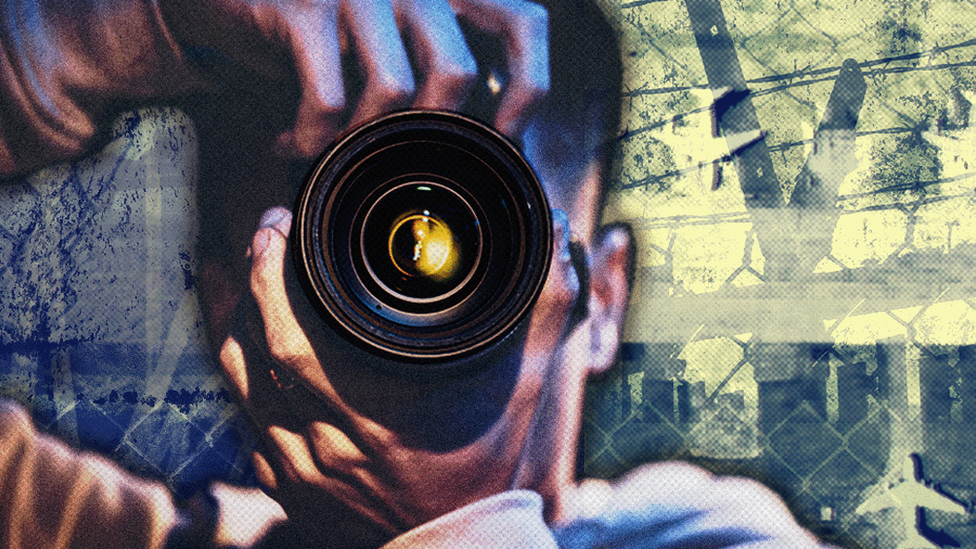The Cuban spying case that has shocked the US government
- Published
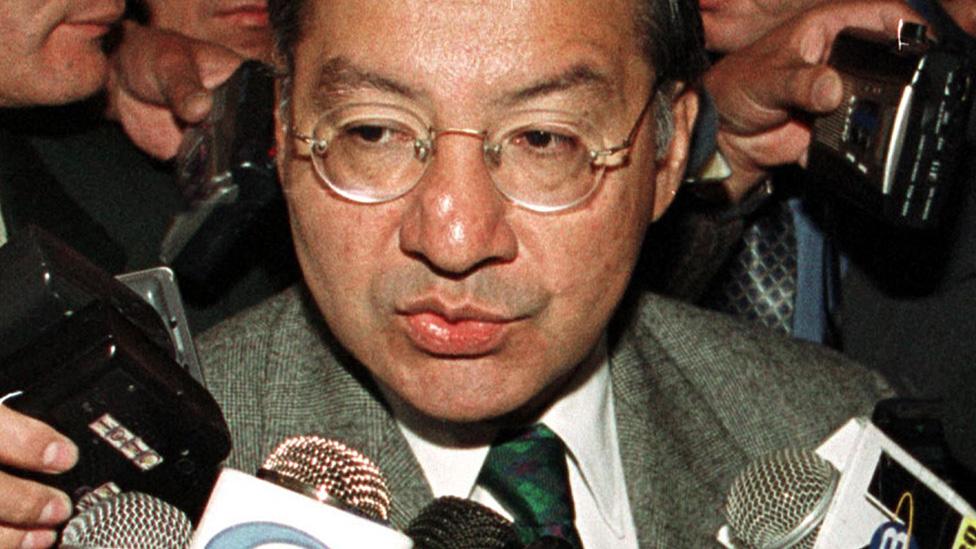
Manuel Rocha, a former US ambassador to Bolivia, is accused of acting as a Cuban agent for more than 40 years
When the former US ambassador to Bolivia, Manuel Rocha, was arrested in Miami recently and charged by his previous employer - the US government - with having spent more than 40 years as a Cuban agent, it amounted to one of the biggest spying scandals involving the communist-run island this century.
The US Attorney General, Merrick Garland, called Mr Rocha's alleged crimes "one of the highest-reaching and longest-lasting infiltrations of the US government by a foreign agent".
While Manuel Rocha is yet to enter a plea, many observers remain baffled as to how he could have risen so high in the US diplomatic service while evading detection for so long, apparently honing a reputation as a hard-nosed conservative while secretly harbouring a deep-seated allegiance to the Cuban Revolution.
Evidence recorded by an undercover FBI officer, posing as a Cuban government contact, appears to show him describing the United States as the "enemy", praising the late Cuban leader, Fidel Castro, and boasting about having successfully maintained his dual identity for decades.
One man who was not entirely surprised, though, was James Olson, the former head of counterintelligence at the Central Intelligence Agency (CIA). He has years of first-hand experience of Cuba's intelligence service, the General Directorate of Intelligence (DGI).
"I would rank them as probably the most aggravating intelligence service I've ever worked against," he says. "That's not just because they're so devious and so ruthless, but because they're so good."
Former CIA agent Olson says the idea that Cuba allegedly "ran" Rocha for four decades is part of their modus operandi, especially with ideological spies as opposed to mercenary ones.
"They also ran our other major Cuban losses for many, many years," he explains, referring to a number of US citizens who were discovered to have spied for Cuba.
"They ran Ana Montes for 16 years, Philip Agee for 15 years, the Myers couple for 26 years." The Rocha case, he says, is in keeping with their work.
'They beat us'
Mr Olson says there is a common misconception that the DGI became blunted after the fall of the Berlin Wall once the KGB stepped back from the island.
Not so, he argues. In fact, he believes they are more sophisticated than ever.
"I consider the Cubans more disciplined and more effective pound-for-pound than the KGB ever was. The fact that the KGB - or the SVR, as it is today - maybe sponsoring them less than it had in the past, I don't think has affected their ability to carry out operations in any way."
"They've surpassed the KGB in terms of tradecraft and motivation and resistance to penetration," he says.
It's a point which came home to James Olson in June 1987, when a Cuban spy, Florentino Aspillaga, walked into the US Embassy in Vienna and defected. The testimony he gave to the Americans shocked US intelligence chiefs and revealed the extent and calibre of Fidel Castro's spying network.
"Aspillaga told me some very disturbing things", recalls Mr Olson. "He said that the Cuban DGI had successfully run 38 double agents against us. So every agent that we thought we'd recruited on the island was, in fact, being controlled by the DGI."
It still rankles the retired CIA man that, by his own admission, the Cubans got the better of him.
"They owned us. They beat us. That's one of the reasons I have this personal grudge against the Cuban intelligence service because they have been so successful in operating against us."
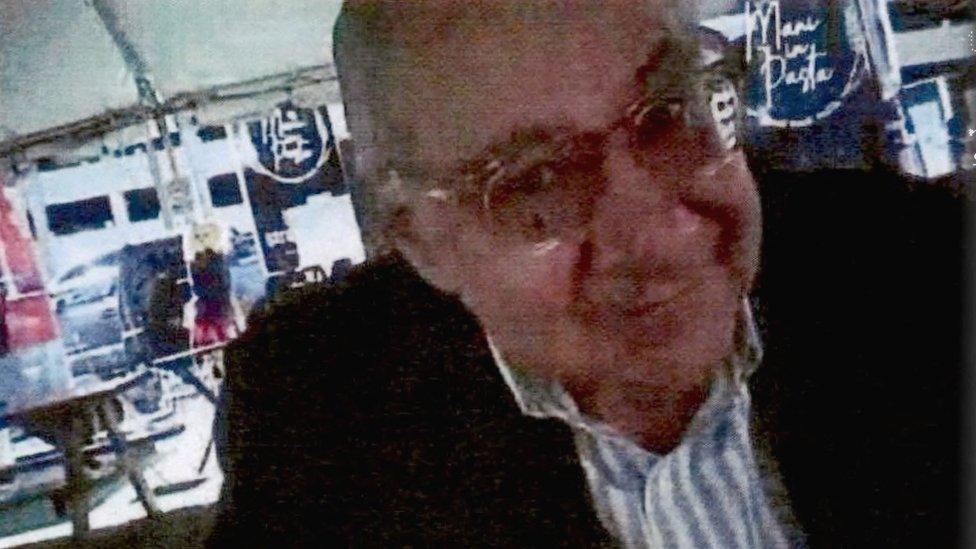
The US authorities have released footage of Manuel Rocha covertly recorded by an FBI agent
As a top diplomat, Manuel Rocha had access to a wealth of classified and sensitive intelligence information. The US government is now trying to establish exactly how much of it he allegedly passed to his Cuban handlers while at the State Department.
For its part, Cuba has made no comment about Manuel Rocha, his arrest or the charges he is facing in Miami.
Whenever spying or spycraft is mentioned, Cuba's basic position is that it has been forced to use every method at its disposal to defend the revolution from more than 60 years of successive US administrations trying to force the communist-run government from power.
One of Cuba's best known former spies is Gerardo Hernández. He was the head of a ring of five Cuban intelligence officers which infiltrated anti-Castro Cuban American groups in Florida in the 1990s.
He was arrested in 1998 on conspiracy to commit espionage charges and spent 16 years in prison before being released as part of a prisoner swap during the Obama-era thaw with Havana.
In an exclusive interview in Havana, Gerardo Hernández alleged that the US continued to allow armed anti-Castro groups to "operate freely" and "with impunity" on US soil, leaving Cuba "no choice but to seek that kind of [covert] information".
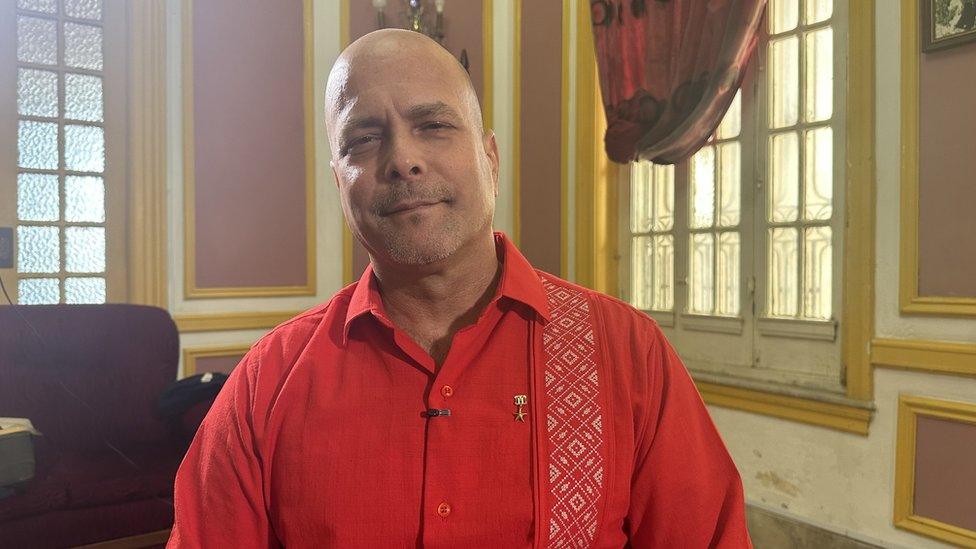
Gerardo Hernández led a ring of five Cuban intelligence officers that operated on US soil in the 1990s
While insisting he had retired as an intelligence officer a long time ago, he recognised that Cuba-US espionage remains a key part of their openly hostile bilateral relationship.
"If right now there are people plotting terrorism against Cuba, most probably there are going to be Cuban patriots seeking the information we need to protect our country," he says.
Ahead of Manuel Rocha's trial, Gerardo Hernandez, now an influential member of Cuba's Council of State, remains tight-lipped about the case saying he knows only "what I have read in the news".
However, in the same breath, he acknowledges that ideological spies, as he himself was in the 1990s, are harder to detect and more skilled at their trade than those who are in it for the money.
"Someone that does something not out of money or profit but for his ideals is always a better professional in this area," he says.
Unsurprisingly, his former adversary, James Olson, takes a much dimmer view of the disgraced Manuel Rocha.
"He's a traitor. He betrayed our country. I think that's contemptible, and I don't think he's going to see the light of day again."
Related topics
- Published10 January 2023
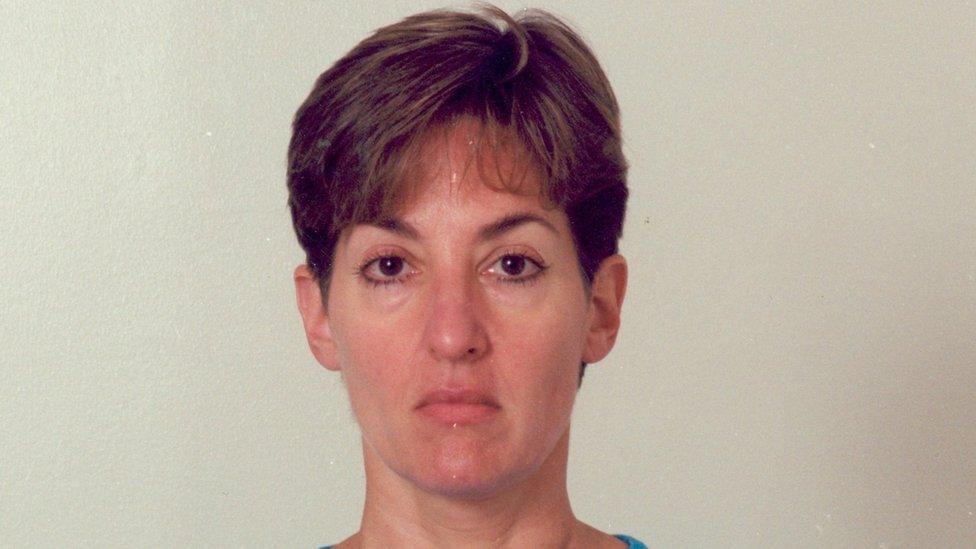
- Published11 February 2023
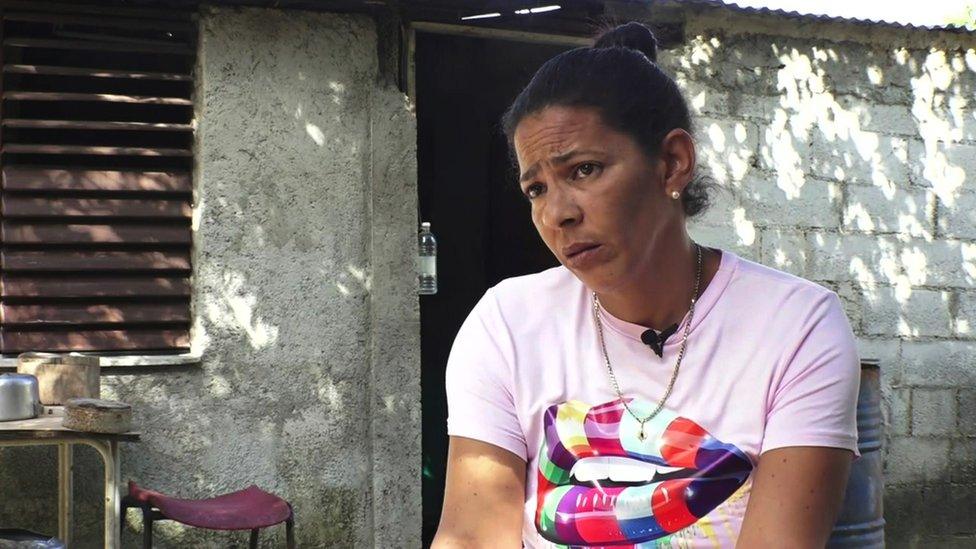
- Published6 January 2024
